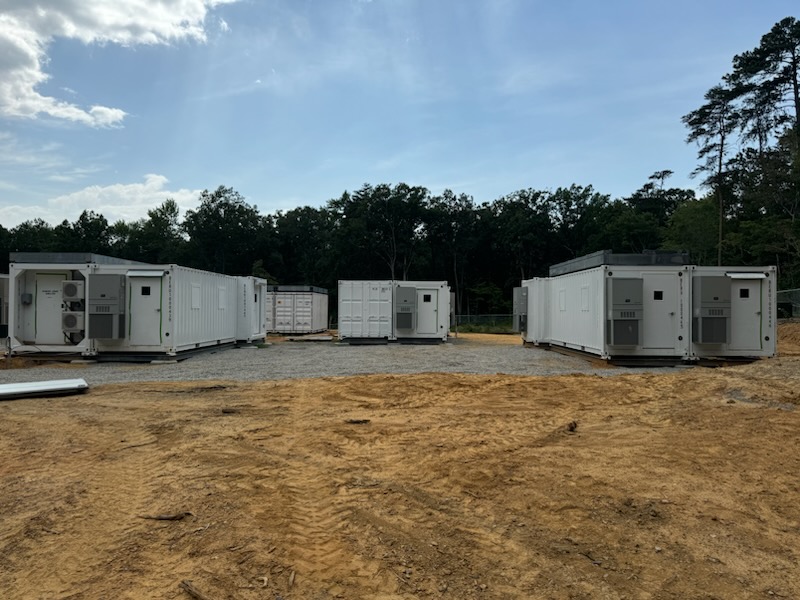DOE Announces $12 Million to Fund Earth and Environmental Systems Science

The U.S. Department of Energy (DOE) has announced plans to provide $12 million in new research grants for Atmospheric System Research (ASR), Earth and Environmental Systems Modeling (EESM), and Environmental System Science (ESS) program science in the Southeast United States.
- View the funding opportunity announcement: DE-FOA-0003420 (PDF). Note: Amendment 000001 was issued on August 23 to incorporate a list of excluded topics on page 9 and to correct an email address on page 48. issued to incorporate a list of excluded topics on page 9 and to correct an email address on page 48.
- Pre-application due date (required): Thursday, September 19, 2024, 5 p.m. Eastern time
- Pre-application response from DOE: Thursday, October 10, 2024
- Application due date: Thursday, November 21, 2024, 11:59 p.m. Eastern time
The Southeast United States supports a wide variety of ecosystems, including natural forests, scrub, grasslands, and wetlands, as well as managed forests, farmland, and developed areas. This region is influenced by a generally warm and humid climate that drives a strong atmospheric coupling. Furthermore, the Southeast United States is subject to extreme events, such as hurricanes, fires, and droughts.
A DOE workshop in August 2018 identified the Southeast United States as a priority region of interest for further study. In fall 2024, DOE’s Atmospheric Radiation Measurement (ARM) user facility will open a new long-term mobile observatory in Alabama’s Bankhead National Forest.
The new FOA will target key earth and environmental system processes that will enable improved understanding and predictive capabilities of this critically important region.
Successful applicants will focus their research on measurements, experiments, field data, modeling, analysis, and synthesis to provide improved understanding and representation of Southeast U.S. ecosystems, watersheds, atmospheric processes, and regional modeling to address one or more of the following research topics:
- Vegetation and Land-Atmosphere Interactions
- Spatial Heterogeneity and Scaling
- Convection, Clouds, Precipitation, and Biogenic Aerosols
- Extreme Events and Disturbance.
“I am very excited to work with my DOE colleagues to provide an opportunity for the ASR, ESS, and EESM communities to propose research that crosses programmatic boundaries,” says ASR Program Manager Shaima Nasiri. “This cross-program announcement leverages recent DOE investments, including ARM’s Bankhead National Forest observatory, and will fund research critical to improving our process understanding and model representation of the Southeast U.S.”
Funding will be awarded competitively based on peer review and is expected to have total award amounts ranging from $300,000 to $1 million, beginning in fiscal year 2025.
The FOA will be supported by awards from DOE’s ASR, EESM, and ESS programs. Some awards may be jointly funded.
According to Nasiri, ASR hopes to release an ASR-specific FOA in FY 2025. However, because of the FOA for the Southeast U.S., an FY 2025 FOA will likely be smaller than in recent years and would focus on different topics than the FOA for the Southeast U.S. As always, FOA plans are subject to Congressional appropriations.
More details about the research topics, application requirements, award amounts, length of research projects, and eligibility are delineated in the FOA document.
Pre-applications are required and should contain a concise description of the objectives and the technical approach that makes clear how the proposed research addresses at least one of the research topics in the FOA.
Full details and application instructions are available in the FOA DE-FOA-0003420 (PDF). Pre-applications must be submitted by 5 p.m. Eastern time on Thursday, September 19, 2024. DOE will respond to pre-application submitters informing them whether a full application is encouraged or discouraged by Thursday, October 10, 2024. Formal applications will be due Thursday, November 21, 2024.
# # #This work was supported by the U.S. Department of Energy’s Office of Science, through the Biological and Environmental Research program as part of the Atmospheric System Research program.

